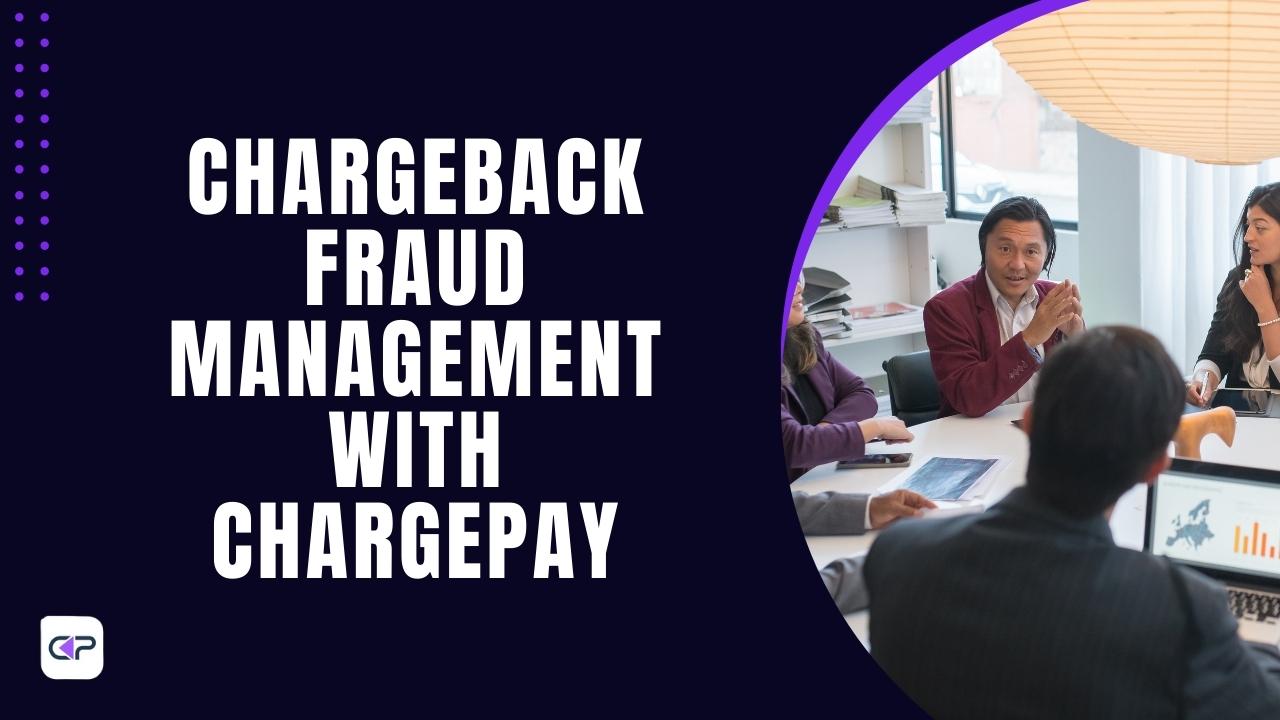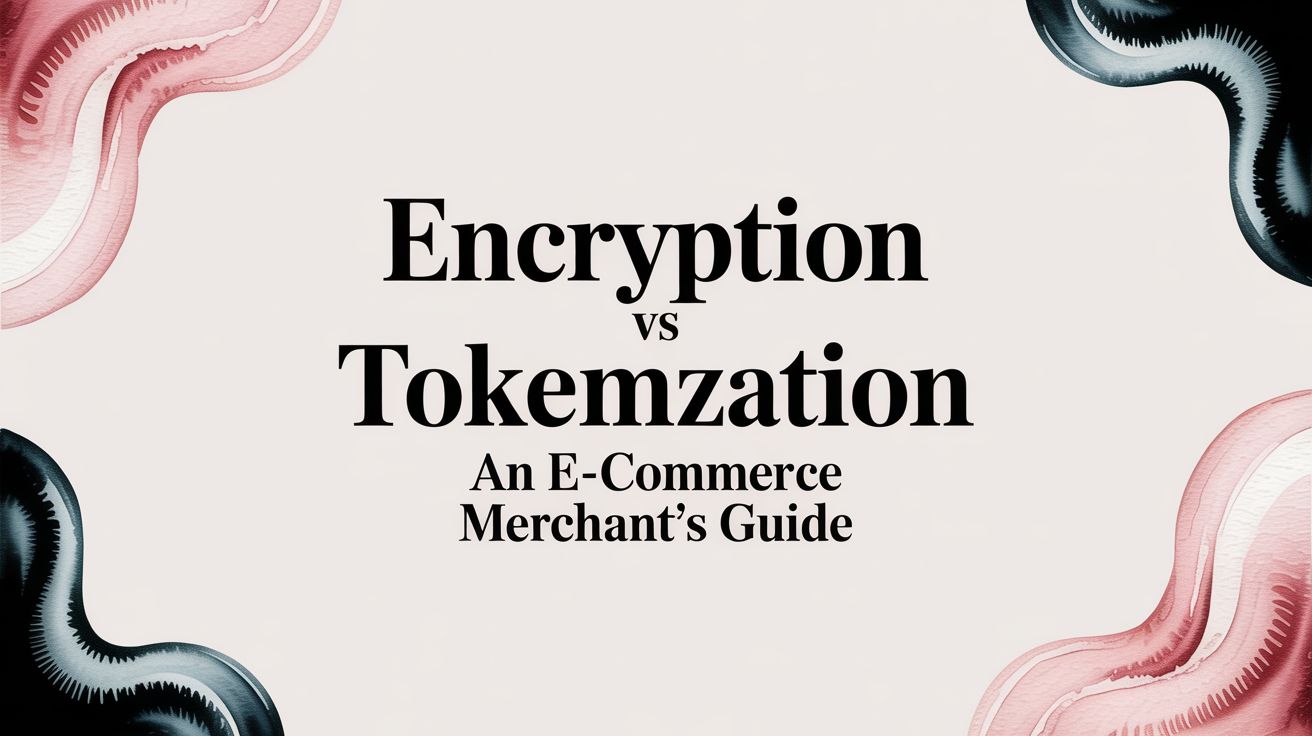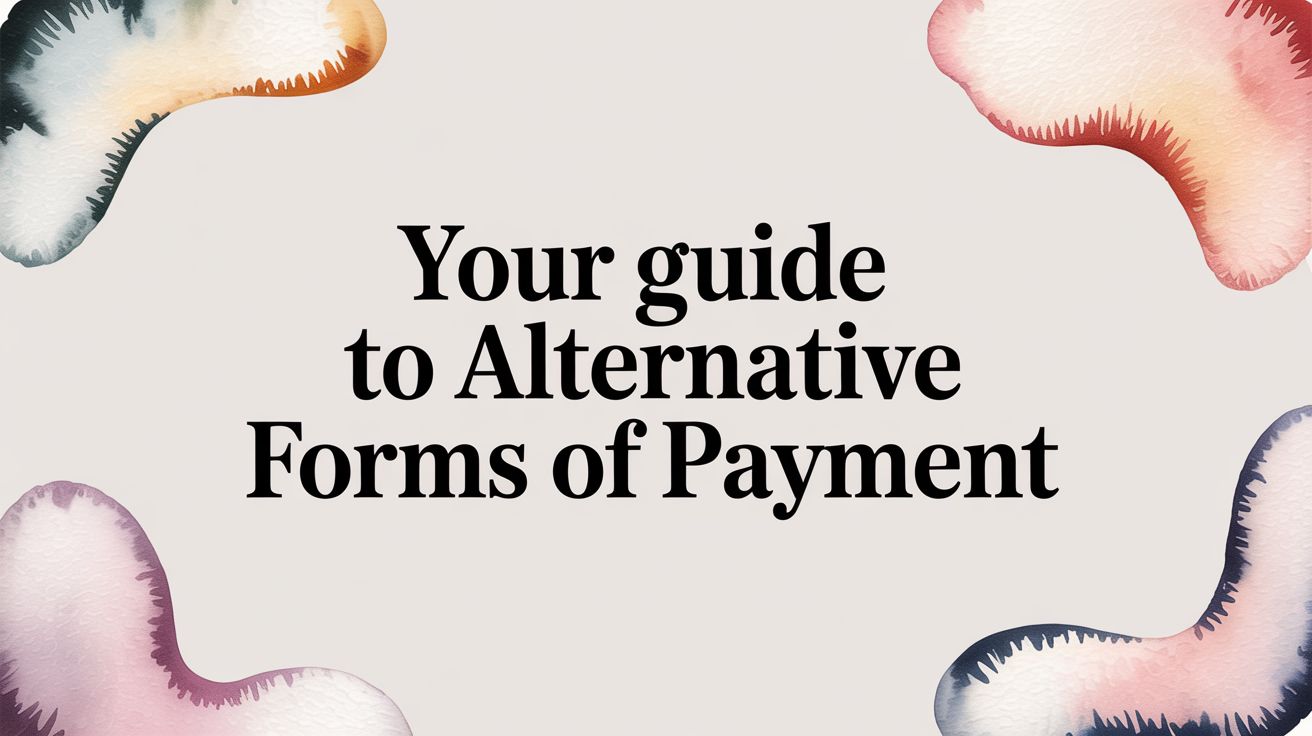
Most businesses go extra miles to ensure that goods and services reach their customers. Despite all the efforts and strategies businesses face repeated cases of chargeback fraud.
This fraud isn't limited to single fraudulent, even organized scamming groups used different tactics. They usually use stolen credit card credentials to make purchases and then dispute the charge to gain unfair advantage of consumer laws.
Now, what are it effects? Beyond financial losses, your reputation takes a hit, and your payments processor will blacklist you upon higher rates.
So, chargeback fraud isn't something you just ignore. That's why to help businesses understand, prevent, and manage fraud to shared this guide.
Types of Chargeback Fraud
As a merchant or service provider, it's essential to be know of the different chargeback frauds that will impact your business. These fraudulent activities will hurt your revenue, reputation, and overall stability.
Let's break down these types of fraud in simple terms:
1. Friendly Fraud
Sometimes, customers dispute charges they made, claiming they didn't make any credit card payments. This is called friendly fraud. It might be accidental or on purpose. Either way, as a merchant, you might lose money.
2. Card-Not-Present (CNP) Fraud
With online shopping, the card isn't physically present. CNP fraud happens when someone uses stolen card details for online purchases. As a business, you need to be vigilant to spot these cases.
3. Synthetic Fraud
Here, fake identities are created by combining real and fake information. Criminals open accounts, make purchases and then dispute them. It's tricky to catch because it looks like real customers.
4. Return Fraud
Sometimes, people buy stuff, use it, and then return it claiming it's defective. This kind of fraud impacts your profits and makes it hard to maintain trust with honest customers.
5. Overcharge Fraud
Customers might dispute a charge because they believe they were billed too much. It could be a misunderstanding, but it still affects your income.
Being aware of these types of chargeback fraud helps you protect your business and manage risks. Remember, it's essential to have good systems in place to detect and prevent these frauds.
Chargebacks Abuse and Friendly Fraud
Chargebacks are meant to protect consumers, but sometimes they're used in a not-so-honest way. This is called chargeback abuse, and it's a bit like bending the rules. Imagine you buy something online, get the item, and then say you didn't.
Or you decide you don't want it anymore and claim you never approved the purchase. That's chargeback abuse, and it's not fair to businesses.
Then there's friendly fraud. It's like when someone buys a service or product, uses it, and then asks for their money back saying they never got what they paid for. Maybe they changed their mind, but instead of returning it, they just want their cash back. That's not playing by the rules either and this is known as friendly fraud.
These things might seem harmless, but they hit merchants and service providers hard. They lose money, and it can make running a business tough. Plus, these sneaky moves can mess with the trust between businesses and their customers. And trust is a big deal.
So, remember, while chargebacks are there to help when things go wrong, using them the wrong way can mess things up for everyone. It's all about fairness and playing by the rules.
Chargeback Fraud with Stolen Credit Cards
One tricky thing businesses deal with is chargeback fraud involving stolen credit cards. Imagine a thief gets hold of someone's credit card details, like a credit card statement, and uses them to make purchases on your online store.
Now, you, the merchant, ship out the goods, and the real cardholder notices the unauthorized transaction and files a chargeback. The credit card company, wanting to keep their customer happy, refunds the money from your account. Double trouble.
This kind of fraud hits your bottom line hard. Not only do you lose money from the sale, but you also have to pay a fee for the chargeback. It’s like being stuck with the bill for a meal you didn’t even eat.
Spotting this fraud can be like finding a needle in a haystack. The orders might seem legit, and the fraudsters can be clever. They might even make small purchases first to seem genuine.
To shield your business, here are some moves you can make:
- Fraud Detection Tools: Use tools that sniff out unusual buying patterns and flag potentially risky transactions. These tools can spot red flags that humans might miss.
- Verification Checks: Beef up your checkout process with extra checks. Verify addresses, use CVV codes, and watch for suspicious shipping locations.
- Manual Review: Consider manually reviewing higher-value orders. It might sound old-school, but the human eye can catch things that automated systems might not.
- Communication: Stay in touch with your payment processor. They can alert you if there’s a spike in chargebacks, helping you take action faster.
Legal Implications of Fraudulent Chargebacks
Fraudulent Chargebacks can have serious legal consequences for businesses. When fraudulent chargebacks occur, businesses may face financial losses, potential legal actions, and damage to their reputation.
Businesses are responsible for providing evidence that disputes are invalid, which can be time-consuming and costly. If a business is unable to provide sufficient evidence, it might be forced to refund the disputed amount, leading to revenue loss along with chargeback fees for every chargeback against customer card payments.
In some cases, these frauds can be considered a form of fraud or theft. This can result in legal action against the individuals or groups responsible for initiating fraudulent chargebacks. Legal proceedings can be lengthy and expensive, diverting resources away from core business activities.
Furthermore, repeated instances of chargeback fraud might lead to increased scrutiny from credit card companies and payment processors. This could result in higher fees, stricter regulations, or even account suspension, severely impacting a business's ability to operate smoothly. If your chargeback rate goes above the threshold of a card network you will have serious issues in the future.
To protect themselves legally, businesses need to maintain meticulous records of transactions, communication with customers, and delivery of goods or services. Timely response to chargeback disputes, along with strong evidence, can help demonstrate the validity of the transaction and safeguard the business's interests.
Chargeback Fraud Impact on Businesses
Based on the observations and stories we hear which day, it is a significant problem for businesses, affecting their bottom line and reputation. Let's take a closer look at how this type of fraud can impact merchants and service providers.
1. Financial Losses
These fraud chargebacks can lead to financial losses for businesses. When a chargeback is approved, the merchant not only loses the revenue from the sale but also might have to pay additional fees. These fees can add up over time and impact the profitability of the business.
2. Strained Revenues
Chargeback fraud can disrupt a business's cash flow. When revenue is lost due to chargebacks, it can become challenging to manage day-to-day expenses, pay employees, and invest in growth opportunities.
3. Increased Operational Costs
Dealing with chargeback disputes requires time and resources. Businesses have to allocate manpower to investigate and respond to chargeback claims. This diverts resources away from core business activities, impacting overall efficiency.
4. Damage to Reputation
Such illegitimate fraudulent chargebacks can tarnish a business's reputation. Frequent chargebacks can make the business appear unreliable or untrustworthy to potential customers. Negative reviews and social media discussions about chargeback issues can further erode trust.
5. Risk of Penalties
Consistent chargeback issues might lead to penalties from payment processors or credit card companies. High chargeback ratios can trigger fines or even account suspension, disrupting payment processing capabilities.
6. Difficulties in Obtaining Financing
Businesses with a history of chargeback fraud might face challenges in obtaining loans or financing. Lenders consider chargeback ratios when evaluating a business's financial stability.
7. Erosion of Customer Trust
Chargeback disputes can affect loyal customers who experience delayed refunds or other inconveniences. This can lead to customers losing trust in the business and seeking alternatives.
Chargeback Fraud in the Travel Industry
In the travel industry, chargeback fraud is like someone taking a free ride at your expense. Imagine you're a hotel or a travel service provider, all set to welcome guests. But then, someone books a room or service, enjoys it, and then denies ever making the payment. This tricky move leaves you without the money and the service you offered.
You see, there are times when people can misuse chargebacks. They might genuinely have enjoyed their stay or service, but they claim they never made the payment. It's like borrowing a book from a library, reading it, and then insisting you never borrowed it in the first place. Sneaky, right?
This isn't just a tiny issue. It can hit hotels and travel service providers hard. Not only do they lose money from the booking, but they might also have to pay extra fees for the chargeback process. Plus, these businesses rely on their reputation. If word gets out that they're dealing with a bunch of chargeback fraud cases, it could hurt their image. And that's not good for attracting more customers.
Now, let's say a family plans a lovely getaway at your hotel. They stay, enjoy all the perks, and then pull a fast one by claiming they never stayed or had a good time. That's chargeback fraud in action, and it's not fair. Hotels and travel service providers have to be extra careful to make sure they can prove the customer enjoyed their service and did make the payment.
To tackle this, hotels and travel businesses are getting smarter. They're keeping detailed records of customer interactions and payments. They might take photos or videos as proof of a satisfied customer. Some even ask for digital signatures to show that the customer was indeed happy with what they got.
This fraud isn't just a headache for businesses; it affects you too. So, let's all play fair and make the travel experience great for everyone.

Chargeback Fraud in E-commerce Industry
Let's zoom in on the e-commerce scene and Chargeback fraud is like an unwelcome guest here. According to a study from the National Retail Federation, merchants face an average loss of $1.75 for every $100 in those tricky fraudulent chargebacks. That might not sound like a lot at first, but imagine it piling up as more and more customers dispute their transactions.
So, picture this: a customer orders something from your online store, and they get it just fine. But then, out of the blue, they decide to call up their credit card company and say they never made the purchase. Suddenly, you're left scratching your head, wondering what went wrong.
Now, you might wonder why anyone would do that. Sometimes it's a genuine mix-up, but other times it's a deliberate move to get a product for free or pull a fast one on you. Either way, the result is the same: you lose out on the sale and might even have to pay extra fees on top of it.
But don't worry, there's a silver lining here. By staying vigilant and keeping an eye out for unusual patterns, you can protect your e-commerce business from these tricky chargeback fraudsters. Make sure your terms of sale are crystal clear, and consider setting up systems to verify customer identities.
Chargeback Fraud Prevention Strategies for Industries
As a business owner, it's crucial to safeguard your revenue and reputation from the risks of chargeback fraud.
Here are straightforward strategies to prevent chargebacks; tailored for different industries to help you thwart these fraudulent attempts:
- E-commerce Industry: Clear Policies, Strong Communication Make your terms of sale crystal clear. Lay out shipping, return, and refund policies in an easy-to-understand manner. Keep open lines of communication with customers, promptly addressing any concerns. This transparency helps deter fraudulent chargebacks.
- Travel Industry: Documentation and Verification Request essential traveler information and proper documentation during the booking process. It can include identification and travel itinerary details. Verifying customer details adds an extra layer of security against chargeback fraud in the travel sector.
- Retail and Service Providers: Robust Transaction Records Maintain meticulous records of transactions, including customer details and purchase histories. This documentation can serve as evidence in case of chargeback disputes. Having a comprehensive paper trail can make a significant difference.
- Regular Review of Transactions: Early Detection Regularly review transactions for anomalies and inconsistencies. Look out for sudden spikes in chargeback requests or unfamiliar patterns. Early detection allows you to address potential issues promptly.
- Enhanced Customer Authentication: Multi-factor Security Implement multi-factor authentication for transactions. This involves combining multiple identification elements, such as passwords and biometrics. It adds an extra layer of protection against unauthorized purchases.
- Customer Education: Clear Expectations Educate your customers about your processes. Let them know what to expect during transactions, including order confirmations and delivery timelines. Well-informed customers are less likely to resort to chargebacks due to misunderstandings.
- Address Verification Service (AVS): Confirming Legitimacy Employ AVS to verify that the billing address matches the address on file with the credit card company. It minimizes the risk of chargebacks stemming from unauthorized transactions.
- Secure Payment Processing: Trusted Platforms Utilize secure and reputable payment gateways. These platforms employ advanced security measures to protect sensitive payment information and reduce the chances of fraudulent chargebacks.
- Regular Staff Training: Expertise Across the Board Train your staff to recognize potential signs of chargeback fraud. Equip them with the knowledge to handle customer inquiries and resolve disputes, fostering a proactive approach.
- Data Analysis: Identifying Trends Utilize data analysis tools to identify trends in chargeback claims. Pinpoint recurring issues and tailor your strategies accordingly, addressing the root causes of disputes.
By following these uncomplicated strategies, you can fortify your business against fraudulent chargebacks. Taking proactive steps not only safeguards your revenue but also cultivates trust among your customers. Remember, prevention is the key to a secure business environment.
Manage & Recover Chargeback Frauds with ChargePay
Chargebacks is a headache for businesses, but with ChargePay, fraud chargeback management is much easily with high win rate. Here's how ChargePay can help you keep chargebacks at bay, all while you focus on growing your business.
Automatic Chargeback Contests with AI
No need to spend endless hours on chargeback disputes. ChargePay's AI takes the lead, contesting chargebacks for you. With ChargePay, you can automate the entire process, ensuring that you have more time to manage other aspects of your business.
Win While You Sleep
Imagine boosting your chargeback win rate even when you're catching some Zs. ChargePay's advanced AI technology works tirelessly, aiming for an impressive 80% chargeback win rate. Rest easy knowing that your revenue is being protected around the clock.
Real-Time Responses for Faster Resolution
ChargePay doesn't waste any time. It springs into action the moment a chargeback appears, responding in real time. It means faster resolutions and less revenue lost in the process.
AI-Powered Representments
ChargePay's AI doesn't just contest chargebacks; it creates winning representments too. Its AI-driven strategy increases your chances of success, making the process smoother and more effective.
Protection Against Fraud Chargebacks
Fraudulent chargebacks are a headache, but ChargePay's AI knows how to spot them. It learns from patterns and behaviors to identify fraud chargebacks and counter them automatically. Your business stays protected, and you can say goodbye to sleepless nights worrying about fraud.
With ChargePay, you're not just getting a solution – you're gaining a partner who's dedicated to safeguarding your revenue and helping your business thrive with fraudulent chargeback management.
Experience the power of AI-driven chargeback management with ChargePay today.







.svg)







.svg)
.svg)
.svg)